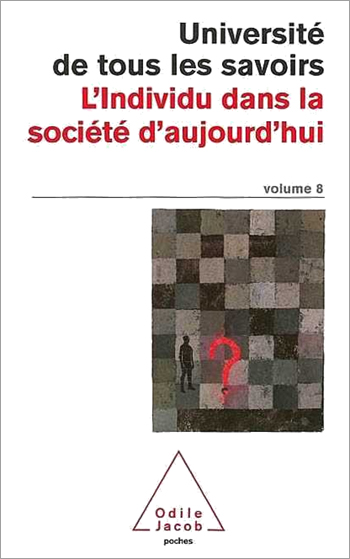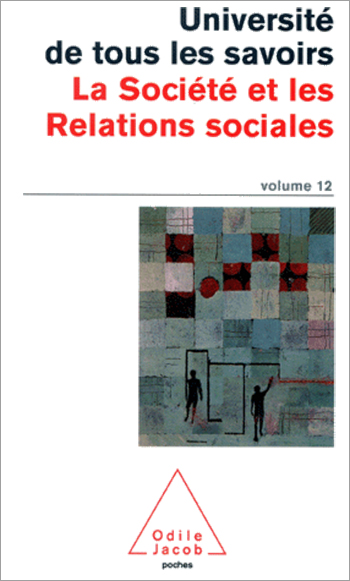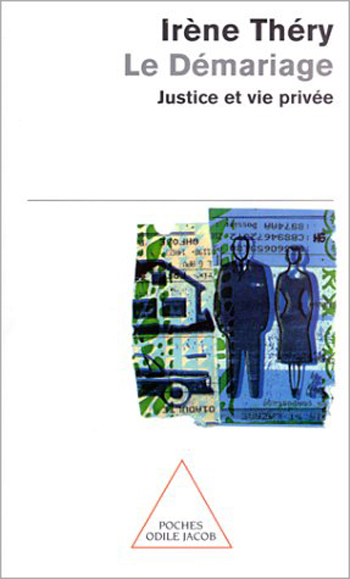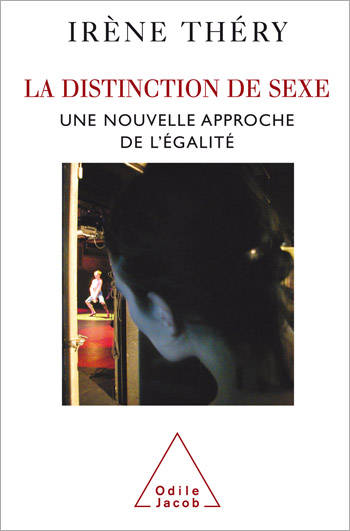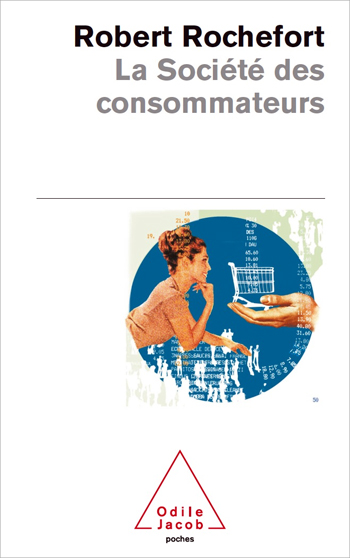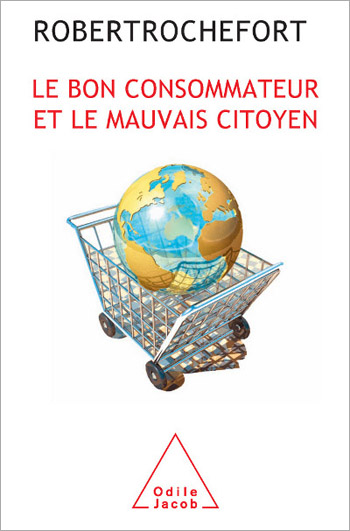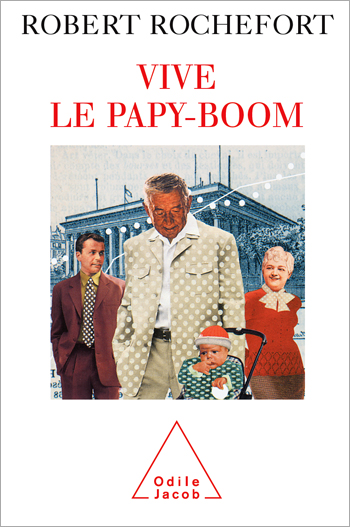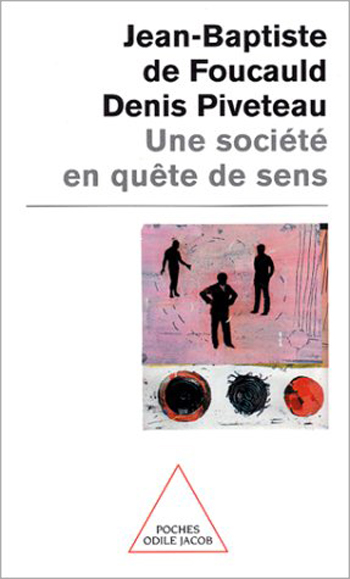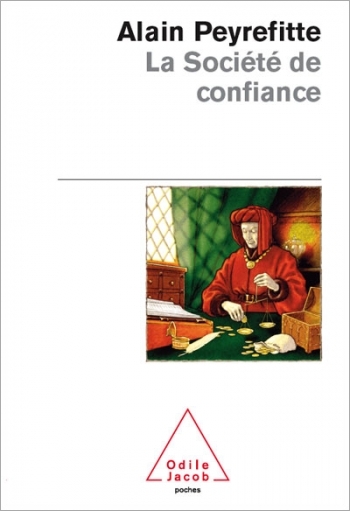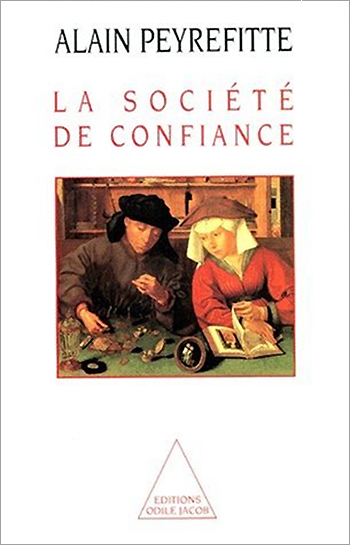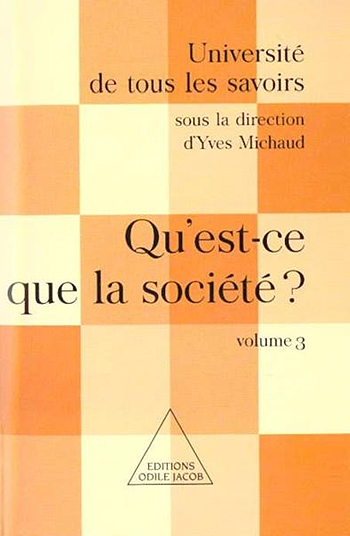Sociology All books

Irène Théry
From Marriage to Divorce Justice and Private Life
Can dual parental responsibility outside marriage be recognized as a principle by law? I. Théry believes that all controversies on divorce are basically debates on marriage. Our representations of the relationships between the individual and society, the private and public realms, are destabilized in this insecure period of unmarriage . The psycho-social drift of justice increases further when we consider the true sufferers of divorce court battles: the children.
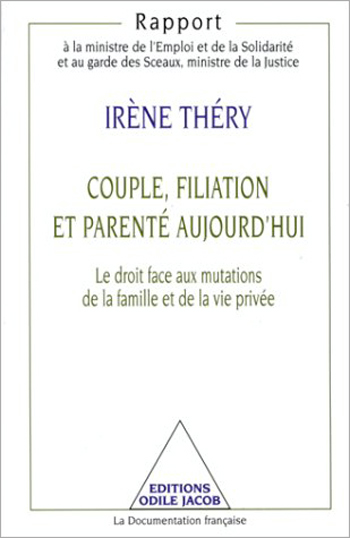
Irène Théry
Modern Relationships and the Family The response of the law to the transformation of the family and the couple
The melting pot where each individual is formed, but also the nucleus of communal life, the family is today a crucial institution of society. However, the current statistics show less, and later marriages, in addition to an increase in divorces and in reconstructed and one parent families, with young people becoming autonomous later as a consequence of these changes. In the face of this, what points of reference should be taken in order to construct the indispensable family policies needed by our country ? With regard to filiation, parental authority, marriage, divorce, cohabitation, and the inheritance and protection of children, how do we adapt the law to these new social realities ? Irène Théry, a sociologist, and author of Démariage, presents in this work an analysis of the state of the family and of private life today, and puts forward the foundations of a new and ambitious step for France.

Monique Sicard
The Making of the Image
It was during the Renaissance that images and pictures were first used by anatomists, microscopists, and astronomers as scientific tools. In that era, scientific images served as a kind of inventory of the known world. In the 19th century, the popularization of scientific ideas gave science a new vigor. Photographic images gave science a new reality, explaining and legitimizing scientific concepts--movement, for example--to a fascinated public. In our days, the scientific image is often a construction--helping us to represent objects and ideas that, like fractals or black holes, cannot be defined through actual observation. Monique Sicard is Projects Director at CNRS Images Média.

Martine Segalen, Nicole Athea
The Markets of Motherhood
Against surrogacy: an impassioned illumination from multiple angles to understand the debates and implications, and, above all, the practical realities with which it confronts us.
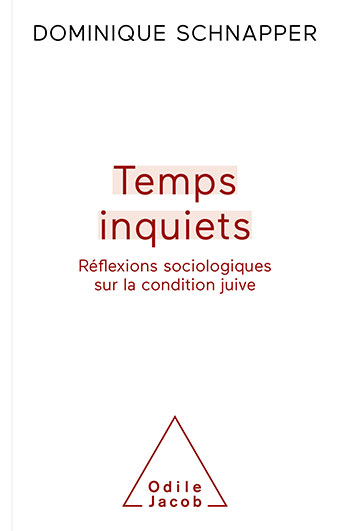
Dominique Schnapper
Sociological Reflection on the Jewish Condition
Following the “days of suspicion” initiated in 1967 by the speech of General de Gaulle, which put an end to a form of accord between France and the State of Israel...
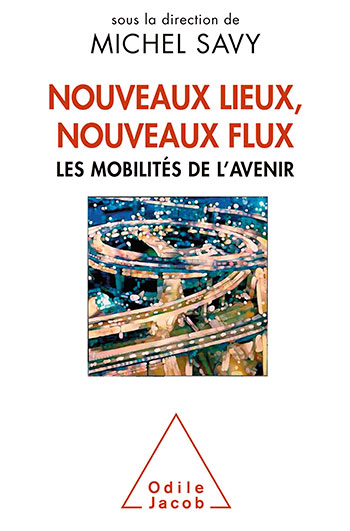
Michel Savy
New Spaces, New Movements Future Mobility
An innovative approach to such essential issues as work, housing and information
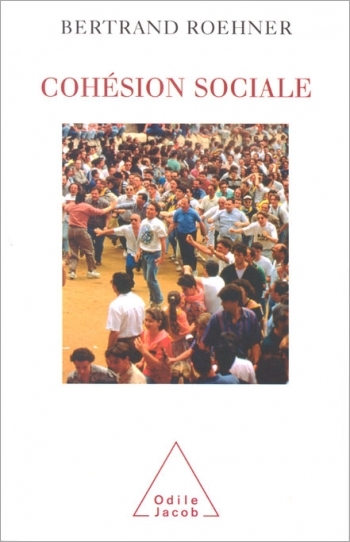
Bertrand Roehner
Social cohesion
The methodology of physics is now being applied to the social sciences. Social cohesion, which assures social stability and continuity, is both observable and measurable. It may be observed in events that repeat: in test events such as the destruction of the mosque in Ayodhya, India (1992), and of the twin towers of the World Trade Center in Manhattan (2001); in catastrophes such as the Great Fire of London (1666), the earthquakes and fires of San Francisco (1906) and Tokyo (1923); in the riots of rejection in Lawrence, Mass., U.S.A. (1984), and in Aigues-Mortes, France (1893); in the protest riots in Brixton, U.K. (1981); and in resistance to foreign occupation, as in France (1940). Social cohesion can be measured through the reactions of a given society in the aftermath of a shock: for example, in the number of Hindu temples that were burned down or mosques that were destroyed following the first two test events listed above. By borrowing the methods of physics, social scientists have been able to make predictions in their own field. Bertrand Roehner is a member of the Laboratory of Theoretical Physics at Pierre et Marie Curie-University of Paris VII. He is the author of Un siècle de commerce du blé en France (Economica), Theory of Markets (Springer), Application of Physics in Economic Modelling, Pattern and Repertoire in History (Harvard University Press) and Separatism and Integration (Rowman and Littlefield).
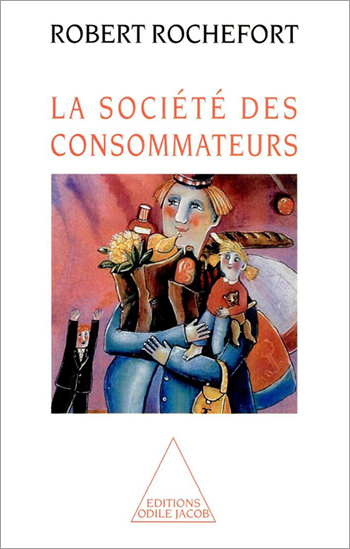
Robert Rochefort
A Consumer Society
This book demonstrates how with households equipped and individuals saturated, consumption must respond to other, more immaterial needs. The new markets are those which can reassure people : healthcare, ecology, land, family and even solidarity.
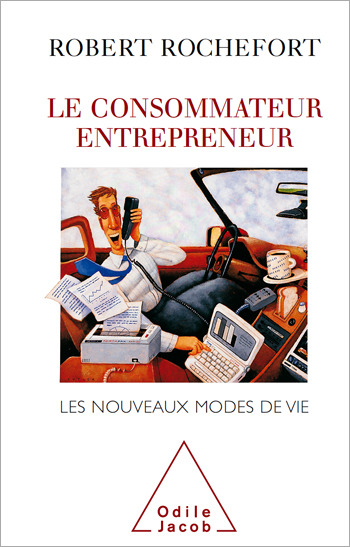
Robert Rochefort
The Consumer-Entrepreneur
The author shows in this new book how in the age of the consumer-entrepreneur professional life and private life tend to merge ; thus on one hand, the consumer tends to manage his family life as he would a company - paying attention to efficiency, cost effectiveness, optimization. On the other hand, he uses more and more products that have a professional and personal use - portable phones, computers - and buys more half finished, do-it-yourself products that he completes. This book profiles a society of individual entrepreneurs that is emerging from the previous salary society of the nineteenth and twentieth centuries. Robert Rochefort is the director of the Research Center for the Study and Observances of Living Conditions.
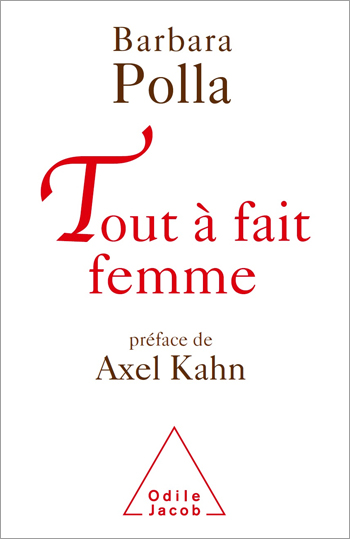
Barbara Polla
A Woman First
A unique, personal and passionate approach to a fundamental question: the position of the two sexes, face to face and in the world.
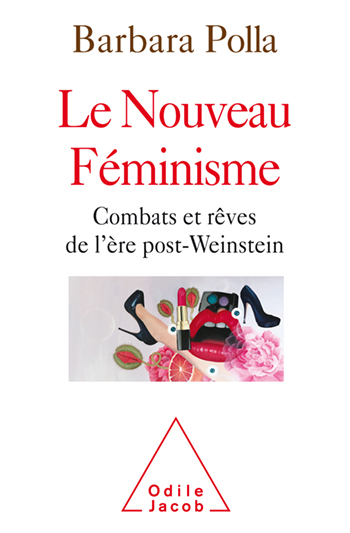
Barbara Polla
The New Feminisms Struggles and Dreams in the Post-Weinstein Era
New light shed on feminism by a woman involved in the women’s movement. To find oneself in a galaxy of feminist currents. A reflection on the status of women.
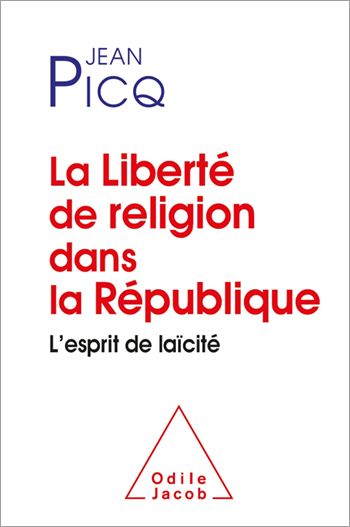
Jean Picq
Religious Freedom in the French Republic Restoring the Spirit of French Secularism
‘Laïcité’ has been at the heart of numerous debates in France. The author argues here for a multifaceted, open secularism.
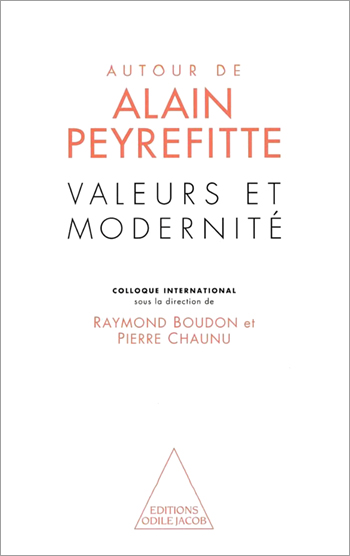
Alain Peyrefitte, Raymond Boudon, Pierre Chaunu
Values and Modernity Expanding on Alain Peyrefitte
With The Society of Confidence, and Of the Economic Miracle, Alain Peyrefitte has illustrated that growth is not primarily founded on the material wealth of a nation, capital, or even on work. Development is intrinsically linked to mentalities and values, which are the essential elements of economic, political and social modernity. Using this thesis as a starting point, the Institute of France organised a conference which brought together economic and technological historians, sociologists, criminologists, and experts from across the world, amongst which were R.Boudon, S.Eisenstadt, D.Landes, and S.Lipset. The wide spectrum of debate runs from the history of religious mentalities (P. Chaunu, J.Delumeau), to penal philosophy (D. Szabo). The comparative outlook of this book allows the reader an insight into the hidden depths of confidence, from Switzerland (J.-F. Bergier), to Japan (Terushi Hara), right through to the Third World (P. Moussa).
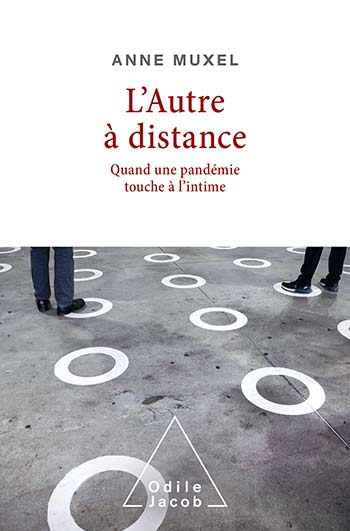
Anne Muxel
The Other at a Distance When a Pandemic Affects Intimacy
A sociological analysis that looks in depth at the upheavals brought about by the pandemic that have affected the intimate side of our existence and our relationships with others.
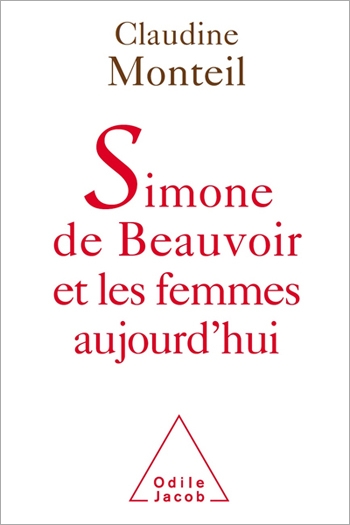
Claudine Monteil
Simone de Beauvoir Today
The author evokes her long friendship with Simone de Beauvoir and offers a detailed portrayal of women’s lives today.
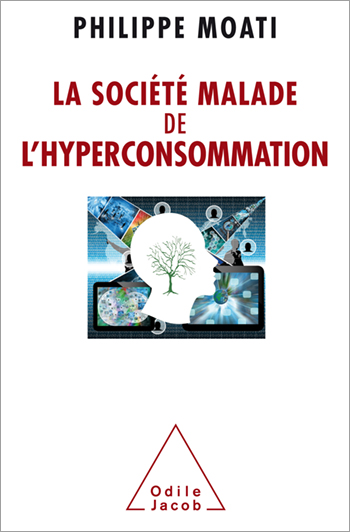
Philippe Moati
The Sick Hyperconsumer Society
Hyperconsumption undermines social cohesion and “living together”

